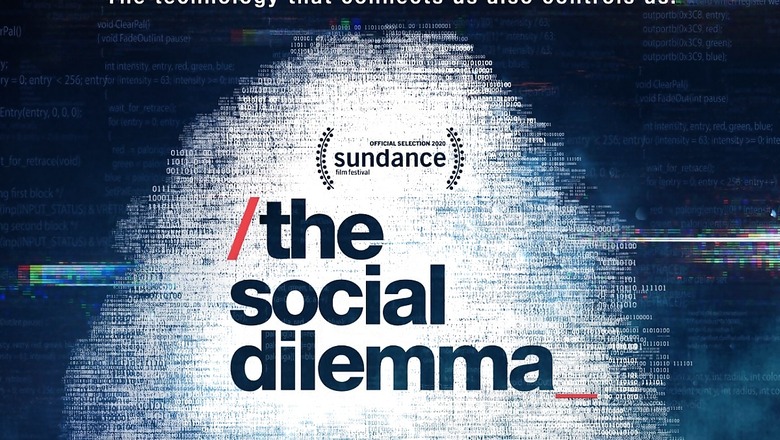
views
The Social Dilemma has been a viral documentary that highlights how users remain addicted to social media and their smartphones, in turn promoting dysfunctional social behaviour. Now, weeks after the release of Orlowski’s documentary on Netflix, Facebook – the world’s largest social media group, has issued a seven-point response to the narrative that The Social Dilemma weaves with reference to addiction, privacy, targeted ads, polarising content, misinformation and more.
Speaking on the seven broad topics that Facebook has noted as skewered in The Social Dilemma, the group says that its shift from a content-driven News Feed to a people-driven one caused decrease of over 50 million hours of browsing Facebook, every day. On this note, it says that it actually is working to mitigate the threat of addiction by funding research and working with mental health experts, among other things.
Facebook further says that it has offered users a clear way to remove or edit their advertisement preferences, and Facebook maintains transparency over what advertisers show to each user. “This (ad-supported) model allows small businesses and entrepreneurs to grow and compete with bigger brands by more easily finding new customers. But even when businesses purchase ads on Facebook, they don’t know who you are. We provide advertisers with reports about the kinds of people who are seeing their ads and how their ads are performing, but we don’t share information that personally identifies you or sell your information to anyone,” adds Facebook’s open letter.
ALSO READ | The Social Dilemma Isn’t Shocking, But it Does Bring the Privacy Issue From Geeks to the Masses
Facebook further speaks out about its algorithms, stating that portraying them in a negative, eccentric light that The Social Dilemma did “may make good fodder for conspiracy documentaries, but the reality is a lot less entertaining.” It also claims that its codes are in line with standard operating procedures adopted by most technology giants in the present world, and each of these lines of codes are meant to offer better recommendations to make social media more relevant, to businesses and people both.
When it comes to the issue of data collection, Facebook claims that contrary to harvesting user data, Facebook discourages businesses from sharing critical personal user data with the company. “We do not want this data and we take steps to prevent potentially sensitive data sent by businesses from being used in our systems.We have called publicly for regulators around the world to join us in helping to get the rules of the internet right and we support regulation that can guide the industry as a whole,” it says.
Facebook also vouches that polarising content is a “tiny percentage” of what’s on the company’s platform. Even with that, Facebook claims that it is trying to reduce this issue by conducting its own research as well as funding independent ones. On the topic of managing election phases, Facebook says, “We’ve removed more than 100 networks worldwide engaging in coordinated inauthentic behaviour over the past couple of years, including ahead of other major global elections since 2016.” Facebook also promises that in three months between March and May 2020, it has removed over 1 lakh pieces of content for violating voter interference policies, and also promote all the ads in a designated ads library.
Finally, Facebook highlights its 70-member-strong fact checking network as one of the steps that it has taken to combat fake news. In terms of numbers, Facebook says, “We removed over 22 million pieces of hate speech in the second quarter of 2020, over 94% of which we found before someone reported it – an increase from a quarter earlier when we removed 9.6 million posts, over 88% of which we found before some reported it to us.”
Facebook’s opinion of the documentary pivots around that most executives who spoke on it are ex-members, who are said to not know about the ethical activities that these companies have adopted in recent times. “We know our systems aren’t perfect and there are things that we miss. But we are not idly standing by and allowing misinformation or hate speech to spread on Facebook,” it quotes.
While The Social Dilemma’s degree of alarmism cannot be denied, it may not be entirely prudent to dismiss the show as being dated or wholly biased. However, while it does raise an issue or two about how people perceive privacy, many of the social media-related issues that the documentary has raised certainly demanded a far more nuanced narrative, in order to represent more strongly the issues that persist with today’s social media.



















Comments
0 comment